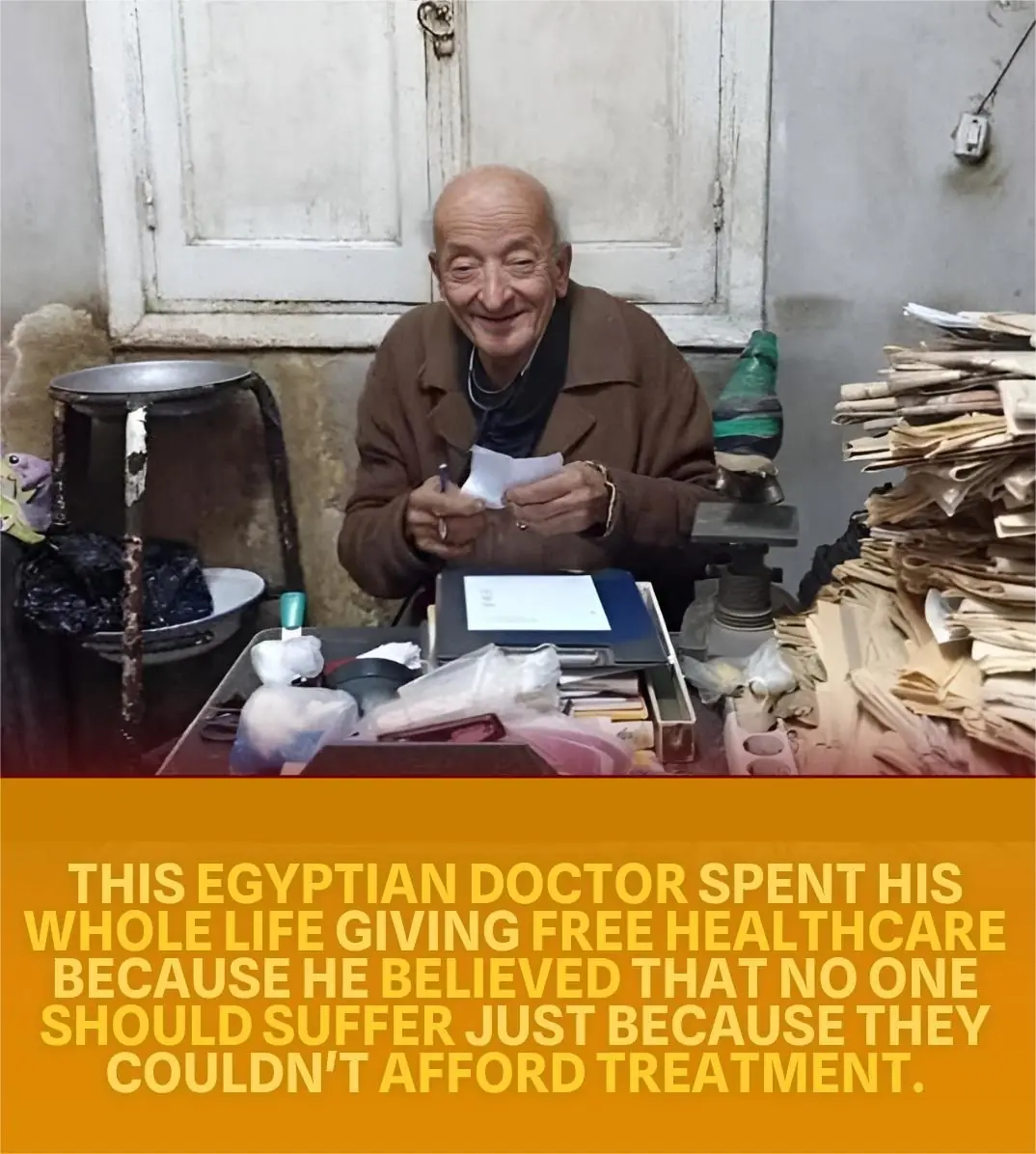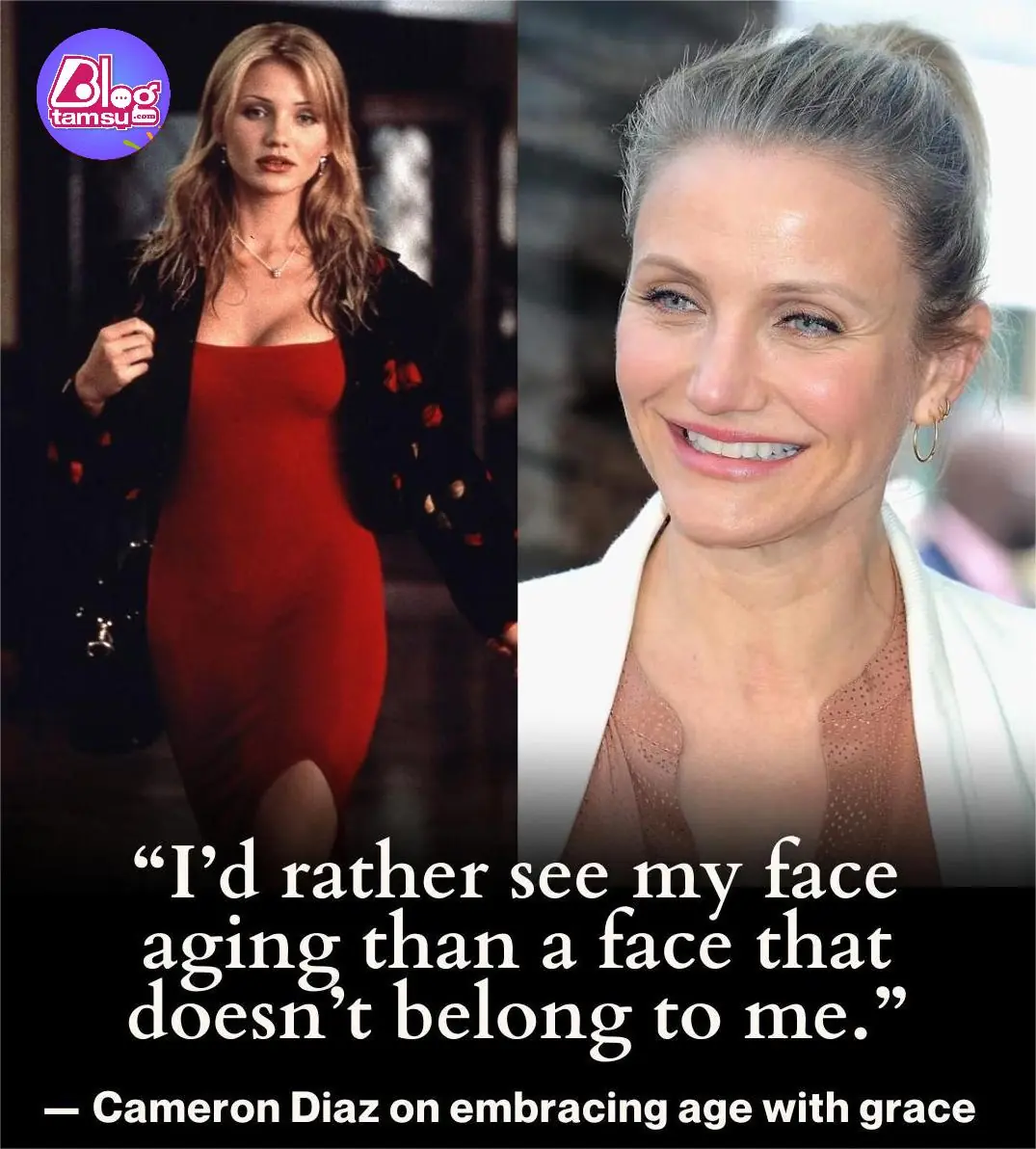
The Doctor of the Poor: How One Egyptian Man Turned Compassion Into a Lifetime Mission
In a world where many spend their lives chasing wealth, one Egyptian doctor chose a different pursuit — healing. For more than half a century, Dr. Mohamed Mashally, known lovingly as “The Doctor of the Poor,” dedicated his life to treating patients who could not afford medical care. His clinic in the city of Tanta became a sanctuary for thousands of the sick, the poor, and the forgotten.
A Doctor Who Refused to Turn Anyone Away
When most of his colleagues raised their consultation fees, Dr. Mashally did the opposite. He charged only 5 to 10 Egyptian pounds — roughly 30 to 60 U.S. cents — per visit. And for many of his patients, even that was too much. So he often treated them for free, offering not just medical advice but dignity and compassion.
He worked tirelessly, often putting in 12-hour days, serving 30 to 50 patients daily, even into his late seventies. His clinic was small and modest, filled with old files, papers, and medicine boxes stacked high. Yet for countless Egyptians, it was a place of hope.
“I pledged to God that I would not take a penny from a poor person and that I would remain in my clinic to help the poor,” he once said — and it was a promise he kept until his final days.
The Moment That Changed His Life
Early in his career, Dr. Mashally faced a tragedy that would shape the rest of his life. A young boy with severe diabetes came to him, desperately ill. The child’s mother could not afford insulin. Not long after, the boy died after setting himself on fire — a desperate act that deeply scarred the young doctor’s heart.
That moment changed him forever. From that day on, he vowed never to let money be the reason someone went untreated. He would dedicate his life to those who had no one else to help them.
Rooted in Humility
Dr. Mashally’s humility was not just a professional choice — it was part of his identity. Born into a modest Egyptian family, he often spoke of how President Jamal Abdul Nasser’s decision to make education free gave him the chance to pursue medicine.
“President Abdul Nasser changed my whole life when he ordered free education,” he once said. “Without that decree, I would not have been able to study.”
He credited his late father for instilling in him the moral compass that guided his life: “My father told me to take care of the poor, and I have lived by his words ever since. Medicine is a humanitarian mission, not a job to amass money.”
A Lifetime of Service
Throughout his decades of service, Dr. Mashally refused to move to a modern clinic or live in luxury. His patients — many of them laborers, widows, and children — came from miles away, knowing they would be treated with kindness whether they could pay or not.
He provided vaccines and medications free of charge to those in need, often using his own income to purchase supplies. Even when his fame spread across Egypt and beyond, he stayed in the same small office, sitting behind an old desk surrounded by stacks of patient records.
When journalists asked him why he never raised his fees or relocated to a more comfortable setting, he smiled and said simply, “Because I find my happiness in helping people.”
An Outpouring of Love
When Dr. Mohamed Mashally passed away in 2020 at the age of 76, the nation mourned the loss of a man who had become a symbol of compassion. Thousands attended his funeral, from the poor he had served to fellow physicians inspired by his example.
The Grand Imam of Al-Azhar described him as “a symbol of humanity who chose to help the poor and needy until the last day of his life.” Tributes poured in from around the world. Artists painted murals in his honor, and social media filled with stories from people whose lives he had touched.
A Legacy Beyond Medicine
Dr. Mashally could have chosen wealth. He could have opened a private clinic in Cairo, charged higher fees, and lived comfortably. Instead, he chose a path of humility and purpose. His wealth was not measured in currency, but in the relief of pain, the saving of lives, and the gratitude of those who once had nowhere else to turn.
In the end, he built something far greater than fortune — he built hope. His story remains a powerful reminder that the greatest acts of humanity often come from the simplest places: a small clinic, a kind heart, and a man who believed that compassion should never have a price.
News in the same category

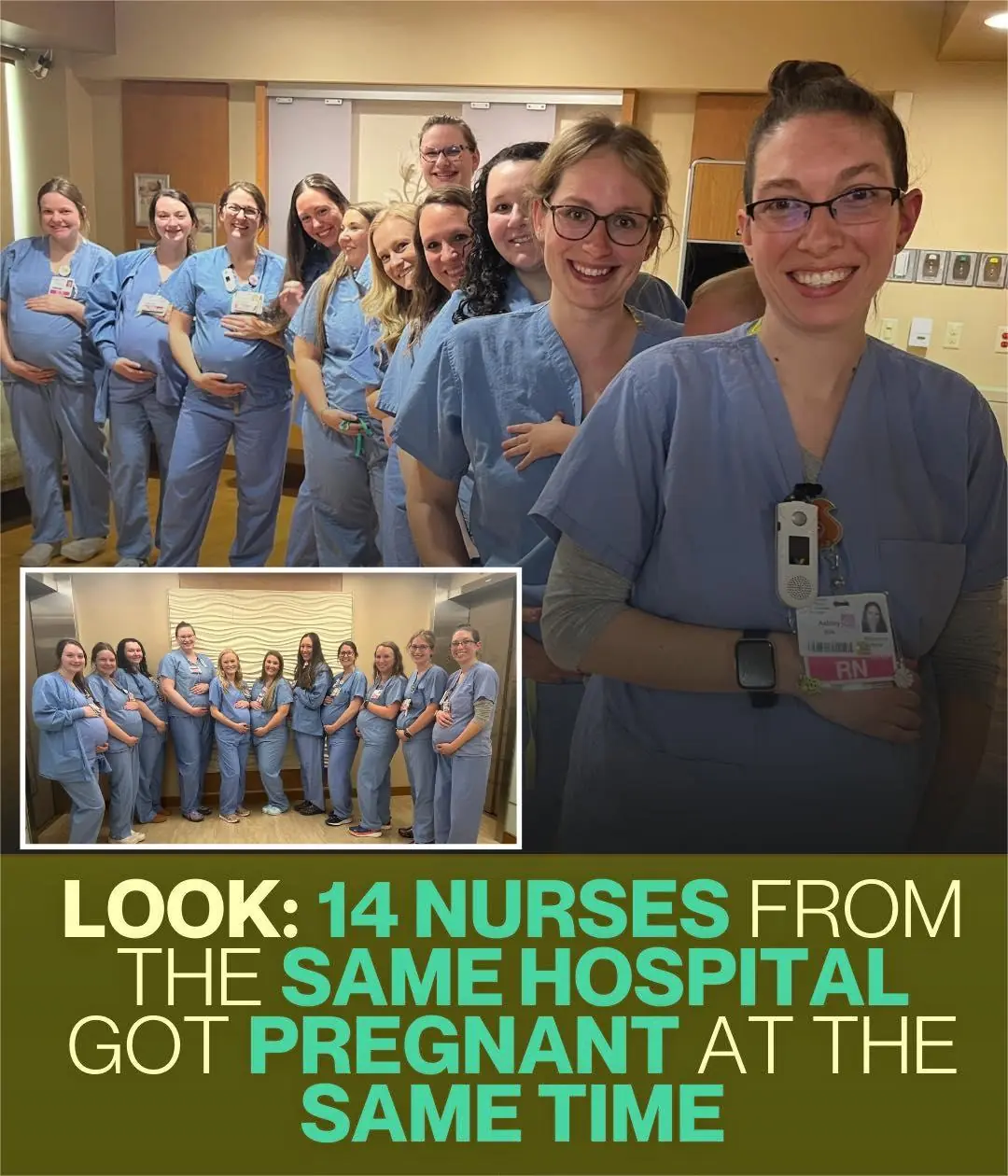
A Hospital Baby Boom: 14 Maternity Nurses Expecting Together
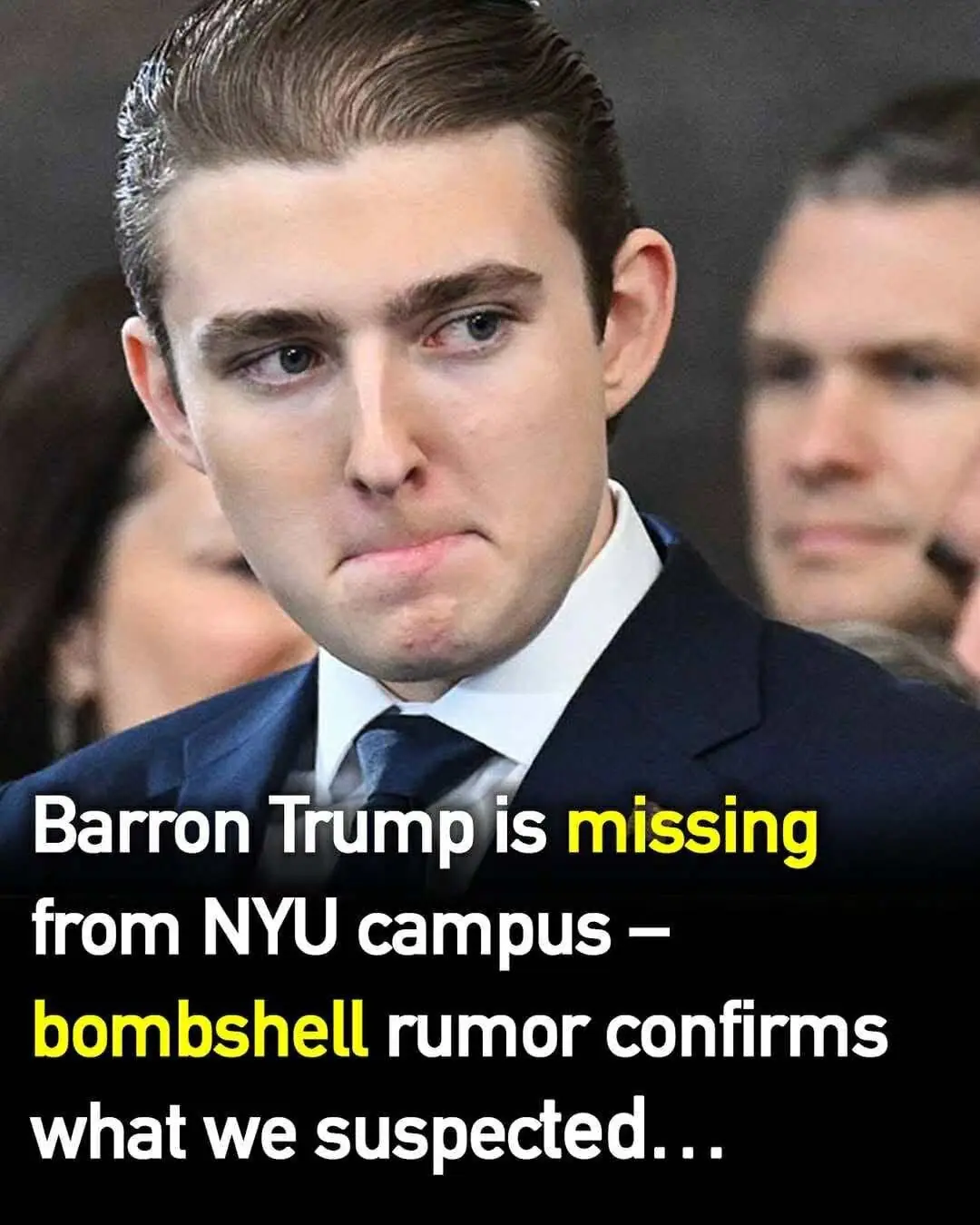
Mystery Behind Barron Trump’s Disappearance from NYU Campus Revealed
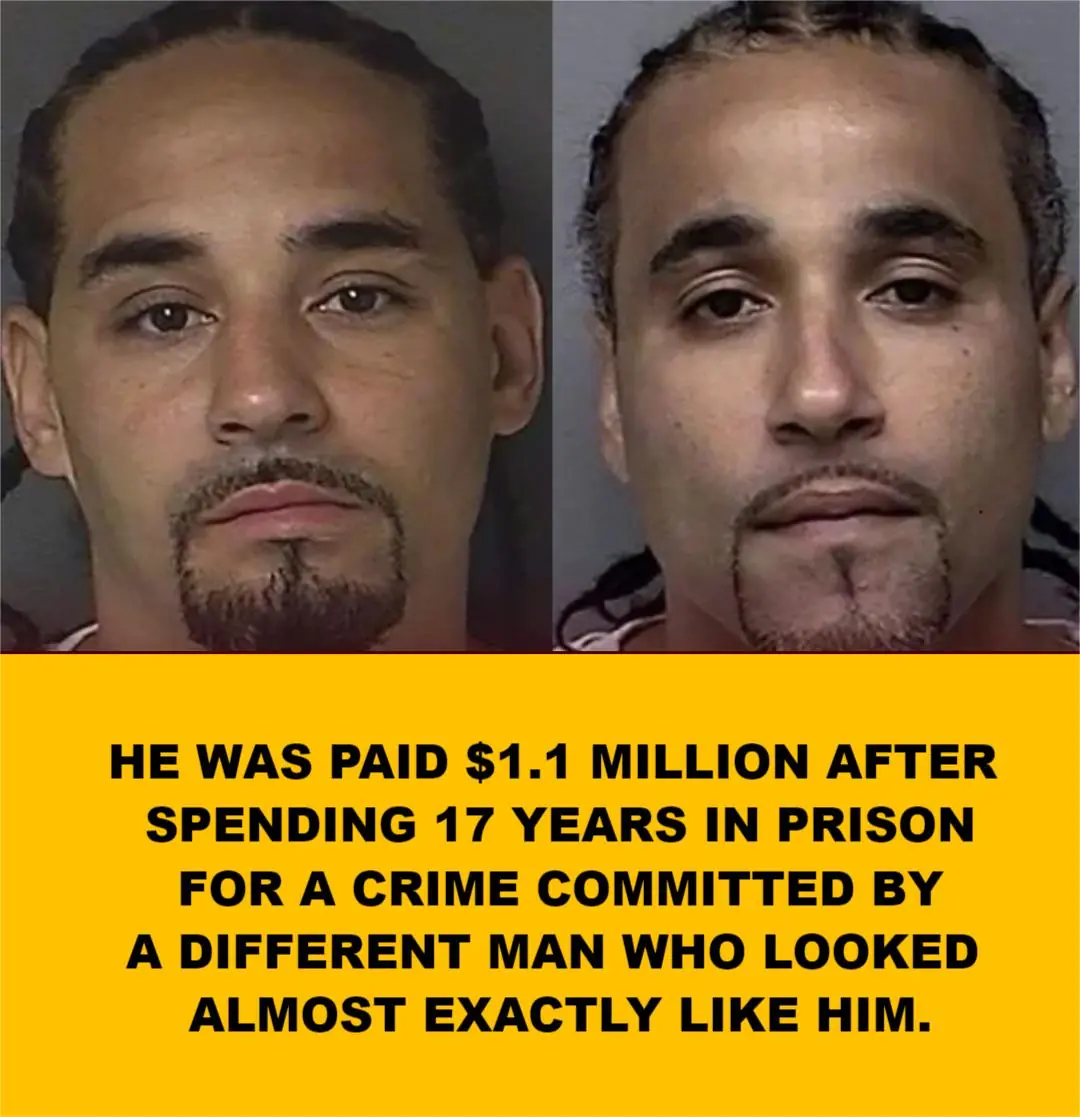
17 Years Lost: Kansas Settles Wrongful Conviction in Doppelgänger Case

A Heartwarming Act of Kindness in the Philippines: Woman Helps Elderly Balloon Vendor After Heartbreaking Loss

Model Makes History by Breastfeeding Her Baby on the Runway — A Moment That Redefined Motherhood in Fashion
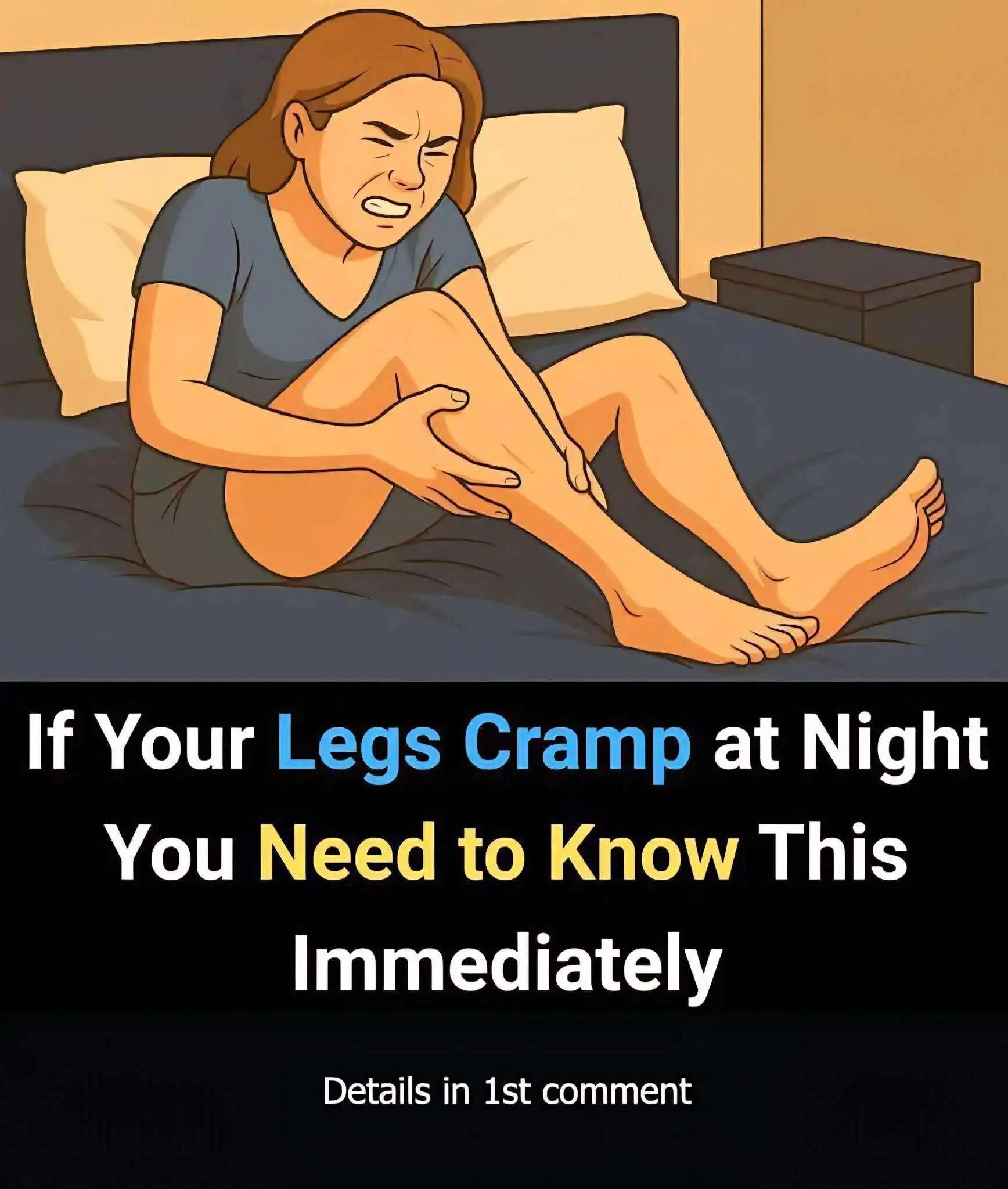
What causes night cramps and how to fix the problem

Pick your wing to reveal who your guardian angel is

When a K-Pop Birthday Went Wrong: The Brazilian Brother Who Mistook Kim Jong Un for a Korean Idol

Itchy Breasts? Here Are 6 Health Issues That Could Be Behind It

Amazon Rainforest Fungus That Eats Plastic: A Real Discovery With Real Limits
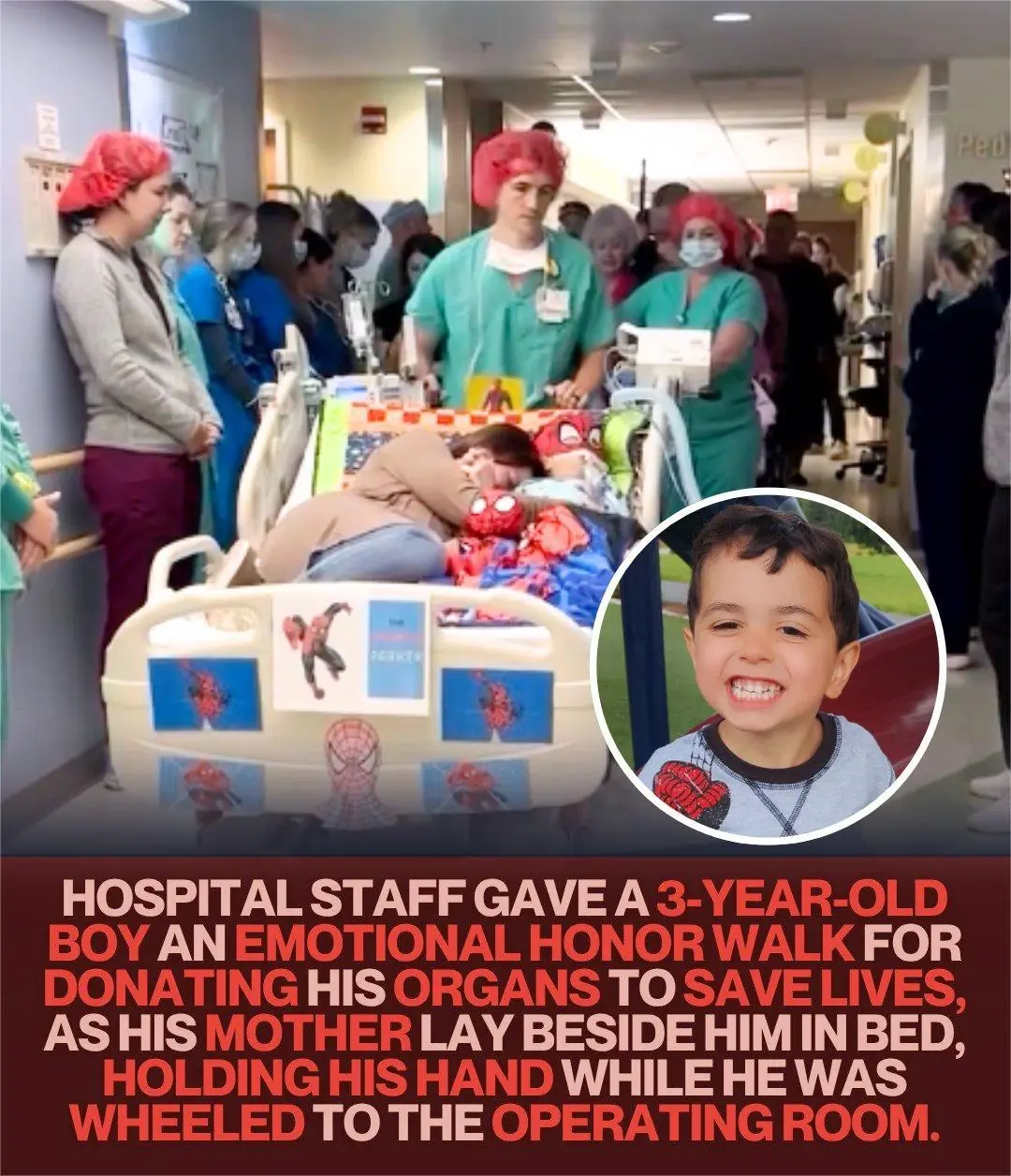
A 3-Year-Old’s Final Walk: Honor, Sacrifice, and Hope

Europe to Replace Passport Stamps with Biometric Entry/Exit System Starting October 12, 2025

The Science Behind Why Putting Something Cold Under Your Arms Can Calm You Down
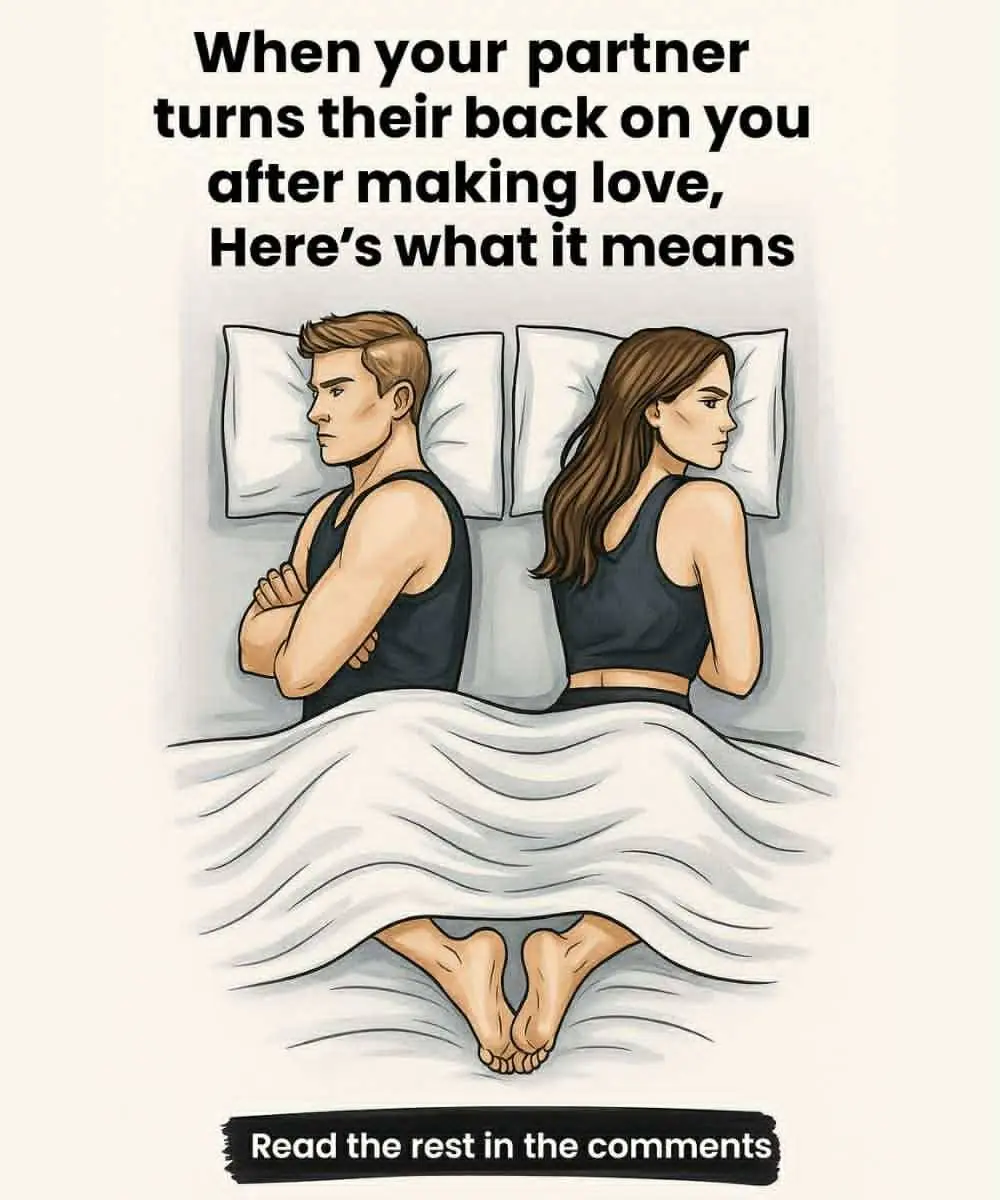
What it means when your partner turns away after making love
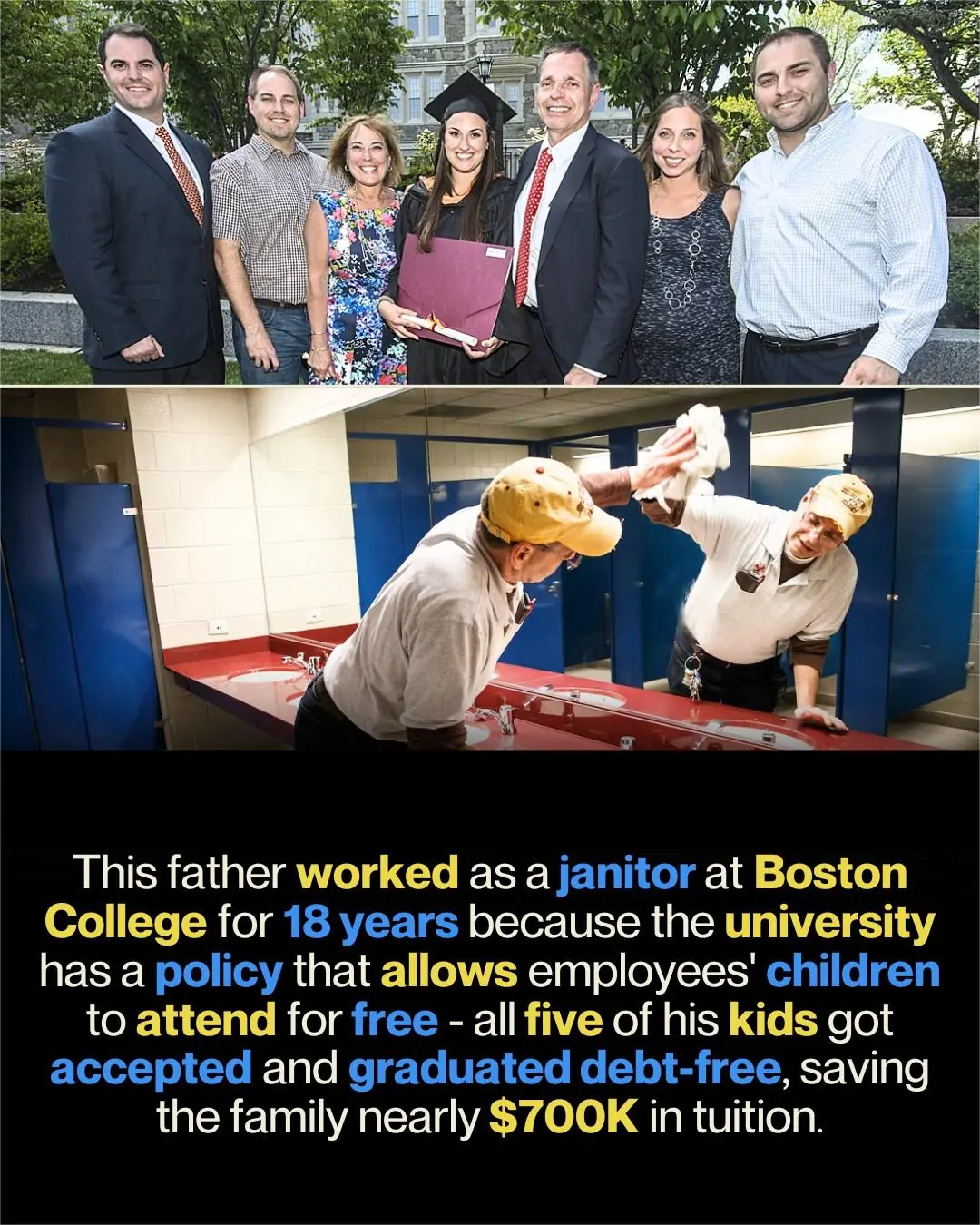
The Janitor Who Sent Five Children to College: A Father’s 18-Year Lesson in Sacrifice

Miss Universe Thailand’s Soda-Tab Gown: A Shining Tribute to Her Parents

China Develops Record-Breaking Super Camera Capable of Seeing Details 62 Miles Away

Japan’s Hybrid Coastal Defense: Engineering and Nature Working Together
News Post

Cameron Diaz: Choosing Authenticity Over Perfection

A Hospital Baby Boom: 14 Maternity Nurses Expecting Together

Mystery Behind Barron Trump’s Disappearance from NYU Campus Revealed
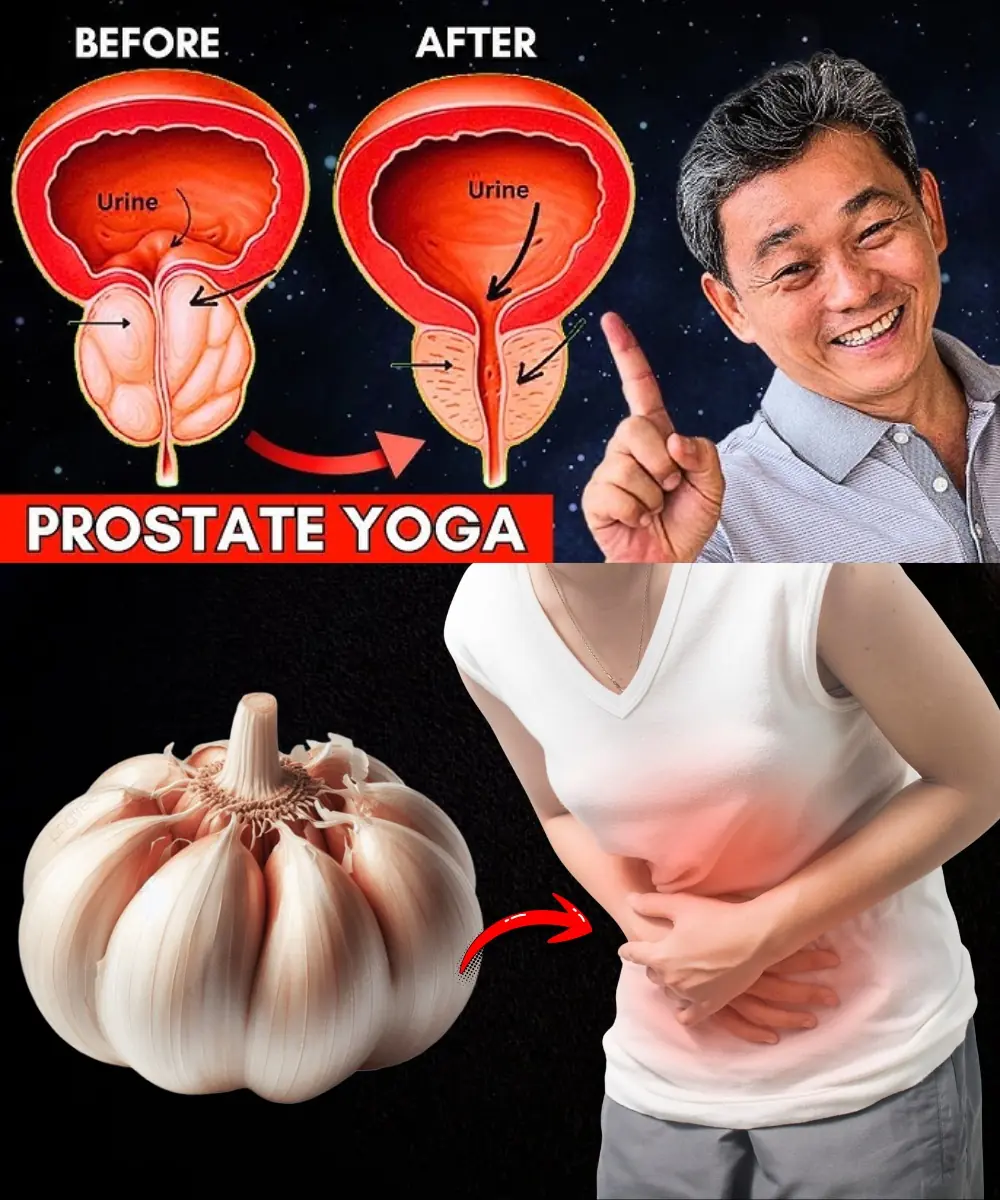
The Secret Weapon for Prostate Health: How Garlic Transforms Men’s Wellness Naturally!

Discover the Secret to Luscious Locks: 3 Red Onion Hacks for Faster Hair Growth and Thicker Strands

Say Goodbye to Swollen Legs, Ankles, and Feet with This Simple Herbal Tea

Why You Should Drink Water Right After Waking Up (And What It Does to Your Body)

Say Goodbye to Urinary Problems, Asthma, Diabetes, Poor Circulation, Fatty Liver, and High Blood Pressure with This Powerful Plant!

The Juice That Strengthens Bones and Eases Knees After 50

Fruits and Cancer: 10 Fruits That May Help Your Body Fight Back
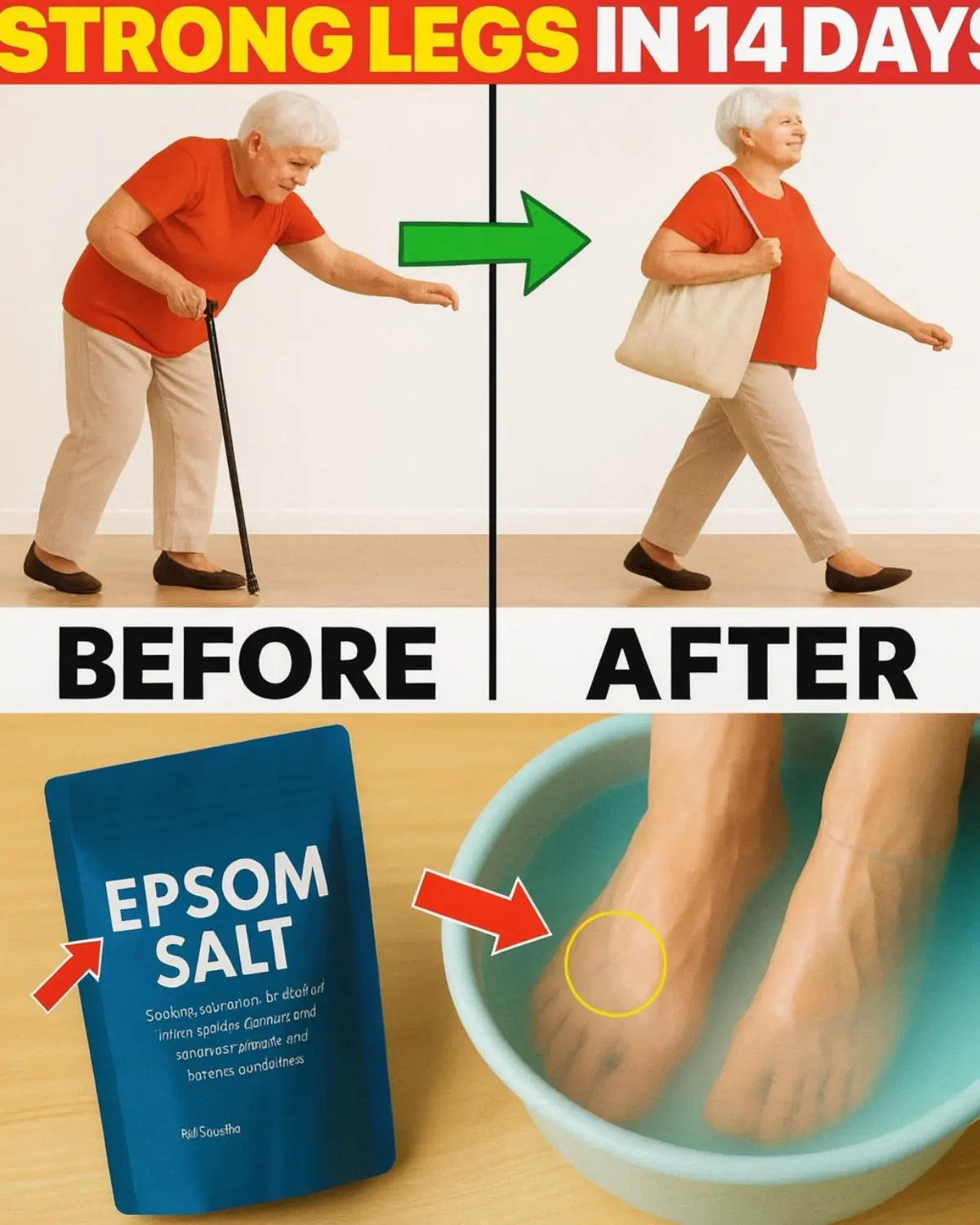
Japan’s Oldest Doctor: How to Heal Yourself After 60

17 Years Lost: Kansas Settles Wrongful Conviction in Doppelgänger Case

Dr. Norman Walker at 99: “49 Years Without Illness!” – His 7 Daily Superfoods Revealed
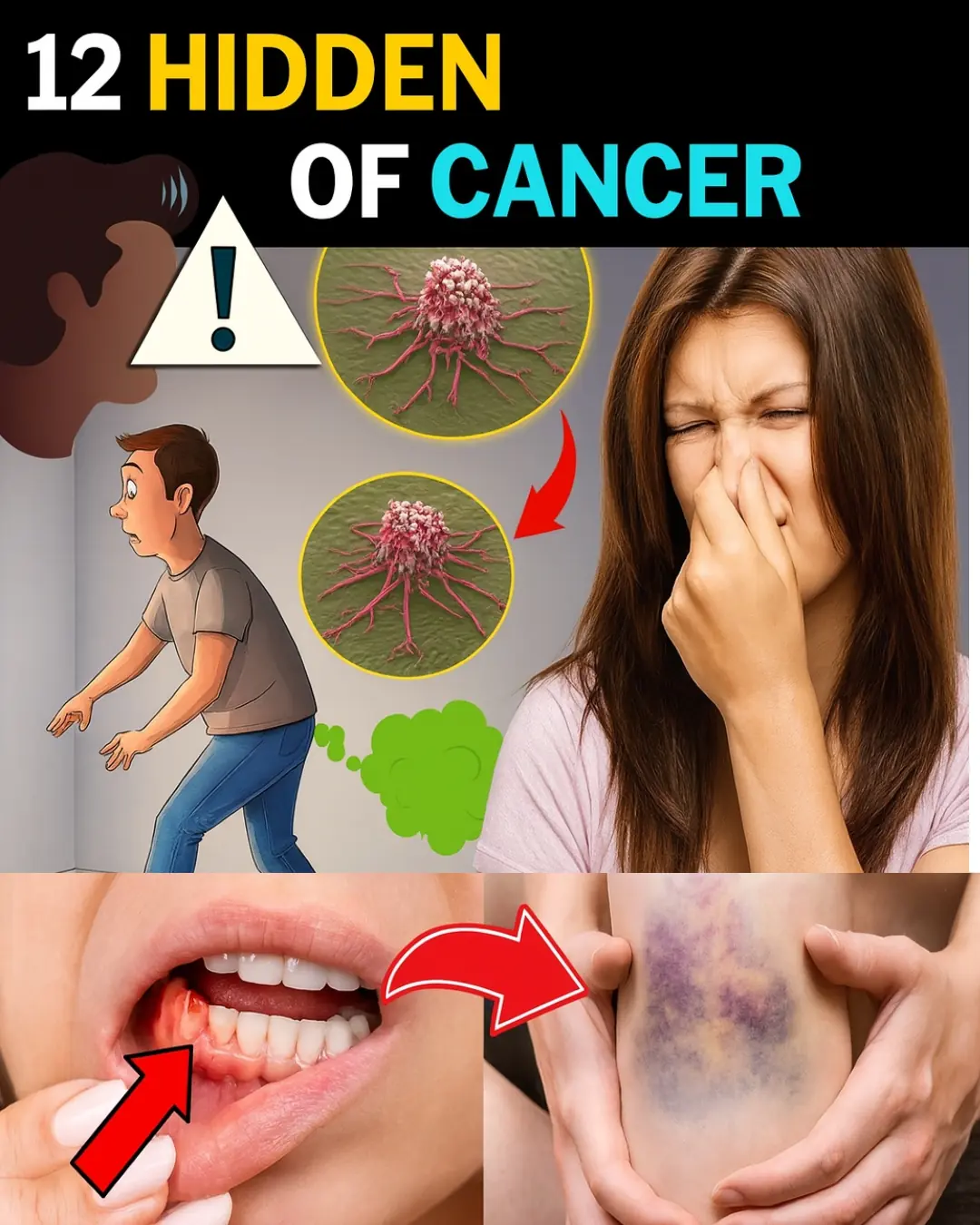
12 Early Cancer Signs You Can’t Ignore – Your Body Is Trying to Tell You Something
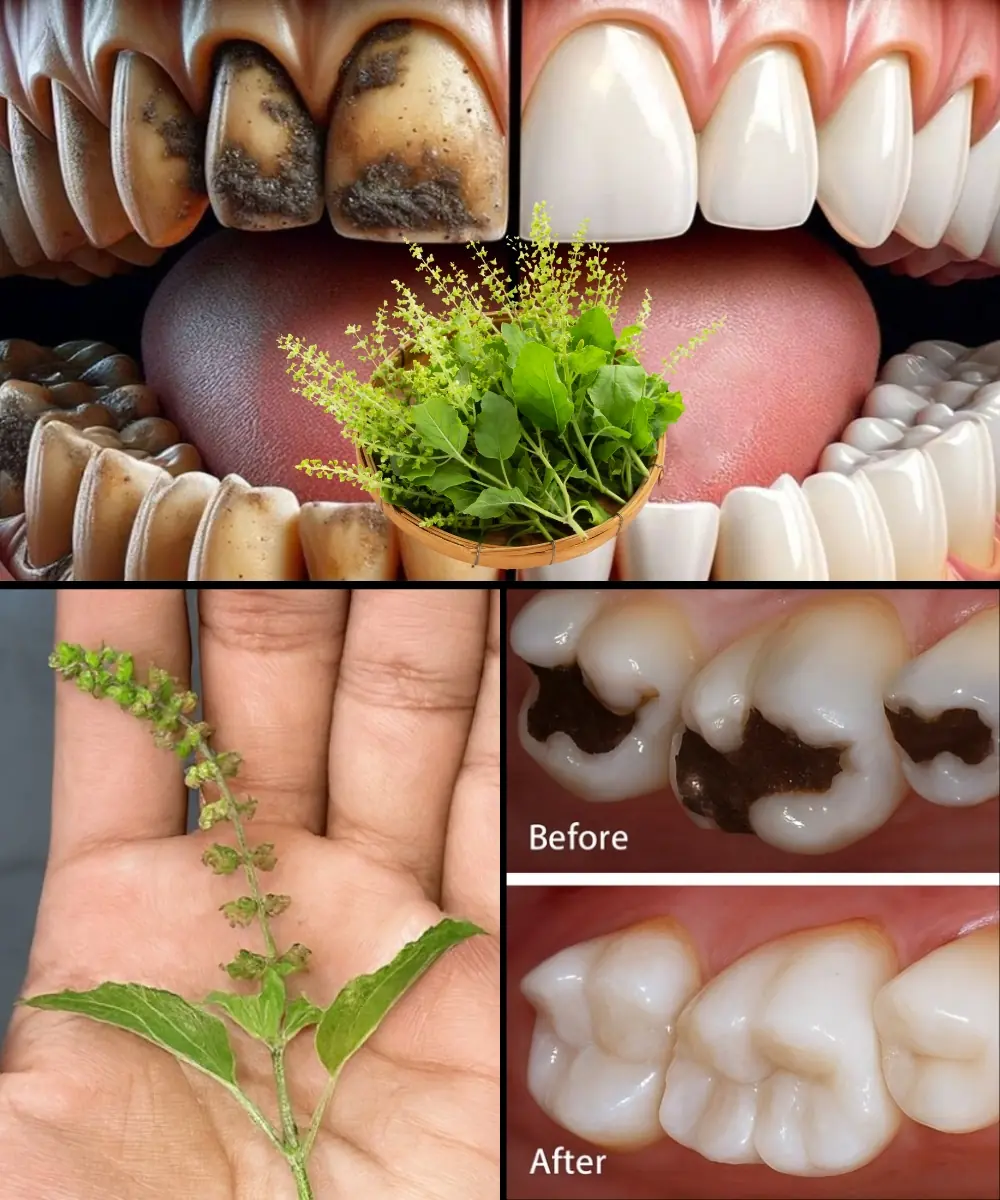
Unlock the Secret to a Radiant Smile: How Holy Basil (Tulsi) Transforms Your Oral Health! 🦷

What Happens When You Eat 2 Cloves of Garlic a Day for 7 Days (Not What You Think)

THIS HEALS YOUR THYROID IN JUST 3 DAYS!
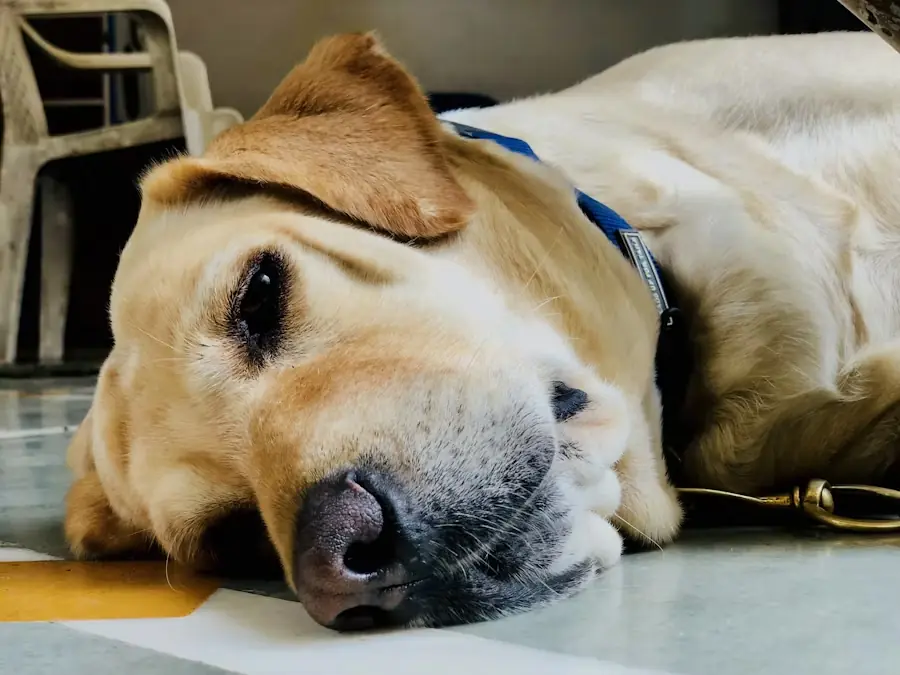
The Vet Raised Тhe Needle… Then Тhe Dog Looked Аt His Owner Аnd Did Something That Left Тhe Entire Room Иn Tears

